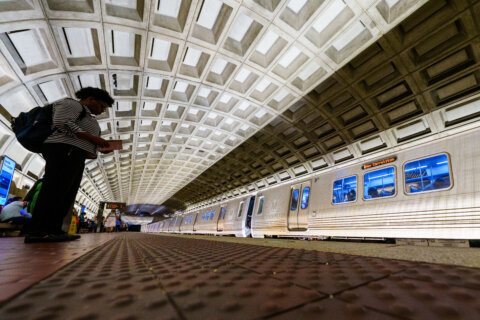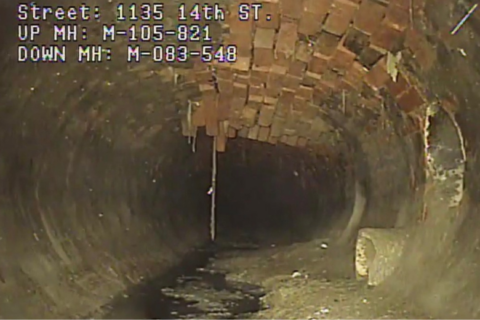Under a best-case scenario, D.C.’s crime lab might not be cleared to handle DNA and seized drugs until next spring — nearly two years after a national board pulled the lab’s accreditation to perform forensic casework amid allegations lab managers concealed information.
The revised timeline was laid out by Interim Department of Forensic Sciences Director Anthony Crispino during a D.C. Council committee hearing Thursday morning on the agency’s proposed fiscal 2023 budget. D.C. Mayor Muriel Bowser has proposed a budget of nearly $33 million for the department, which encompasses two largely separate entities: the forensic crime lab and the District’s Public Health Lab.
The fiscal year starts Oct. 1.
Crispino, who was appointed last May, said regaining accreditation of the two units is “the highest order of priority” for the agency.
District officials initially hoped to have those two units functional by this spring.
Crispino said the agency is working on internal reforms and retooling its quality assurance unit so that the DNA and drug units are in a position, by September, to reapply for accreditation with the ANSI National Accreditation Board, which certifies forensic labs around the country.
Once DFS has reapplied for accreditation, it’s expected the process could take up to six months.
“Realistically, I would like to say that by the end of the fiscal year, we would be in a position at least with the two units … to reapply,” Crispino said. “But again, that’s fluid. I would like to make that a realistic goal.”
Budget proposal
The proposed budget includes additional funding to hire a consultant to help DFS navigate the re-accreditation process and $630,000 to boost training.
The District is seeking to get the lab back into operation incrementally rather than all at once.
Late last year, a report ordered by the mayor to review the lab’s operations laid out dozens of recommendations and urged the District to review every case involving two other sections of the agency — the fingerprints and firearms units — since the agency was created in 2012.
Those units face a more uncertain path back to good standing.
In a separate move, two employees that make up the lab’s Digital Evidence Unit — responsible for unlocking cellphones, for example, and analyzing the contents of seized computers — will be shifted to the D.C. police department where they can, apparently, resume operations.
The move was described as, essentially, a workaround to a requirement in D.C. law that the forensic lab be accredited to perform casework. No such requirement exists for forensic work carried out by the police department.
D.C. Council member Charles Allen, who represents Ward 6 and chairs the Public Safety and Judiciary Committee, scrutinized the decision.
Allen questioned whether it was getting to the root of the problems identified in the report probing the lab’s operations or just “shifting the chairs around on the deck.”
He added: “I’m trying to understand in what ways are we actually solving the problem, are we just moving things around a little bit?”
Crispino said the move is an attempt to head off a backlog of digital evidence and to ensure leads in ongoing investigations aren’t being lost.
“So in that regard, yes, it does actually create a solution,” he said.
Crispino told Allen the move got the green light from the U.S. Attorney’s for D.C., which prosecutes felonies in the District, but was not discussed with the Public Defender Service. He said he expected the decision to be discussed at the agency’s next Stakeholder Council, at which both prosecutors and defense attorneys are represented.
Positions and units go unfilled
Officials have previously said the Firearms Examination Unit, which was the epicenter of the problems first uncovered by prosecutors in 2020, might not be revived at all.
The entire 11-member unit was laid off last year.
For now, the Bureau of Alcohol, Tobacco, Firearms and Explosives is performing ballistics work for the District at no charge, Crispino said.
Another challenge for the agency: A large number of unfilled positions. Amid its public woes and the ongoing loss of accreditation, the agency currently has a vacancy rate of about 30%.
Crispino said the agency has hired a recruiter and is working to build relationships with universities in the area, including George Washington University and George Mason University, to build a pipeline of forensic science talent.
Last spring, the ANAB accreditation board first suspended and then withdrew the lab’s accreditation to perform forensic work for all disciplines following allegations senior managers concealed conflicting findings in an ongoing murder trial.
In that case, firearms analysts erroneously concluded cartridge casings found at the scene of two 2015 shootings had been fired in the same gun. According to documents, an internal review later came to the opposite conclusion but was never disclosed outside the agency.
The head of the agency later resigned, and other managers were terminated.








